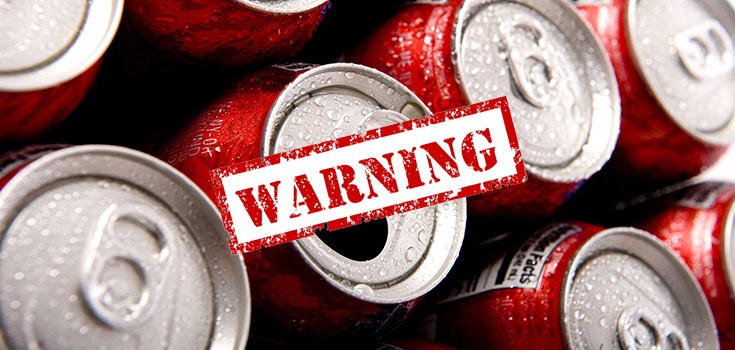Bill to Put Warning Labels on Sodas and Sugary Drinks in California Advances

A bill that would require soft drinks and sugary sodas to feature warning labels has advanced in California. Passing the state senate’s health committee by a vote of 5-2, the bill has its work cut out for it, but if passed it would put California at the forefront in the fight against Big Food for the sake of American health.
From 1999 to 2004, children and youth in the US averaged 224 daily calories from sugary drinks, nearly 11% of their daily caloric intake, according to Harvard University. California led the way in reducing this number by banning sodas from public schools in 2005, and they want to do more now.
The new bill would require these drinks to feature a label warning about the high sugar content and it’s potential connections to diabetes, obesity, and tooth decay.
“Over the last decade or so, courts seem to be providing increased protection to the speech by companies, all at the expense of public health.
Warnings on sugar-sweetened beverages that mirror health and safety warnings long established as permissible on other consumer products should be considered constitutional. However, evolving First Amendment jurisprudence leaves outstanding questions, especially on the interpretation of controversy, formatting requirements, and levels of required specificity for warning language,” says Jennifer Pomeranz, assistant professor of public health policy and management at the NYU School of Global Public Health
Last year, Monning backed a measure that would have taxed the drinks. It was unsuccessful. This less controversial measure has a better chance at passing, though the beverage industry is fighting it tooth and nail.
The bill “will do nothing to prevent obesity, diabetes or tooth decay, and may even make problems worse,” said Lisa Katic who testified on behalf of the California Nevada Soft Drink Association. It isn’t clear how she thinks the labeling could make matters worse.
Read: WHO Lowers Recommended Daily Sugar Intake to 5% of Total Calories
In 2006, beverage companies spent $3.2 billion in marketing. That budget has likely grown since then. About a half billion of those dollars were spent on marketing directly targeting children.
Harvard reports in 2010, preschoolers in the U.S. saw an average 213 ads for sugary drinks on television alone. Older children watched somewhere between 277 and 406 such ads.
Though Katic testified that the “main source of added sugars in American diets are sandwiches and hamburgers,” the role that soft drinks play in the growing waistlines and medical costs of the American public is undeniable.
People who drink soda regularly have a 26% greater risk of developing type 2 diabetes than those who don’t. One study found that men who averaged one can of soda per day had a 20% increased risk of having a heart attack when compared with men who didn’t.
The research is overwhelming that these drinks are aiding in the destruction of American health. All the California bill would do is warn the people about their risks. But, the beverage companies would rather keep these facts quiet.

Label sodas but not GMOs!! Classic!